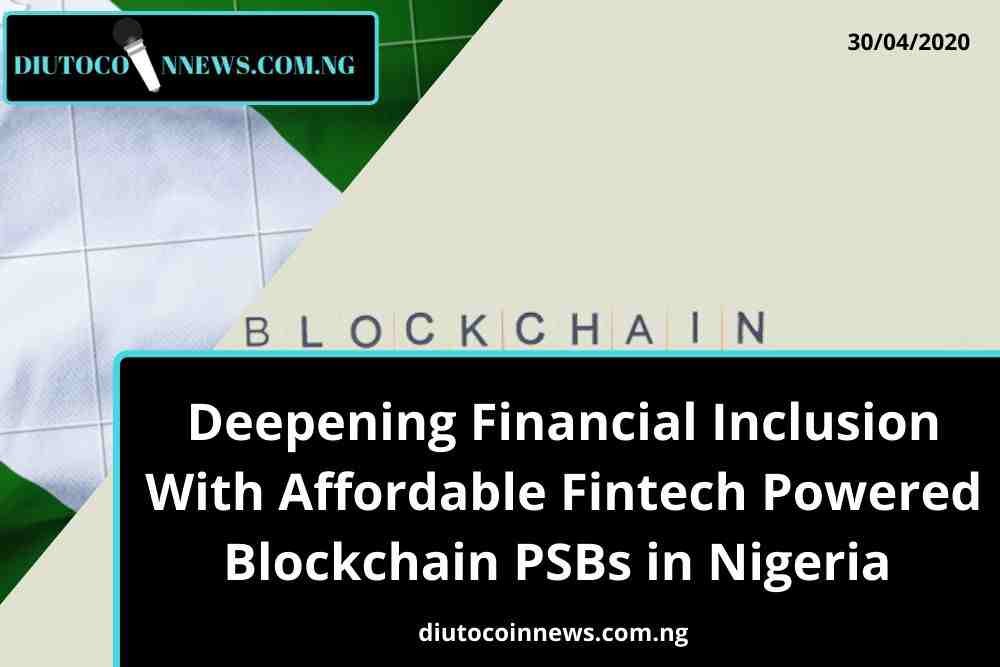According to a new report released by Enhancing Financial Innovation and Access (EFInA), more Nigerians are embracing financial services, with positive impact on lending and the economy.
The Central Bank of Nigeria’s (CBN’s) policies on financial inclusion, including the Payment Service Banks (PSBs) and mobile money initiatives, are expected to take banking to the grassroots and support the efforts to achieve financial inclusion.

Financial Inclusion includes the provision of high quality and user-friendly financial products, such as savings, credit loans, insurance, payments, lending and pensions, which are affordable for every adult mostly the low-income earners.
Financial Inclusion will provide access to financial services to the remote parts of Nigeria. It will also contribute to growth and wealth creation in Nigeria, helping to mitigate the ‘poverty’ trap in the country.
The Central Bank of Nigeria’s (CBN’s) policies on mobile money, agency banking, Know Your Customer (KYC), insurance, cashless policy and recently, Payment Service Banks (PSBs) are expected to take off this year and help deepen financial inclusion growth in the country.
Recently, CBN created the National Financial Inclusion Strategy (NFIS), to ensure that over 80 per cent bankable adults in Nigeria have access to financial service by the end of this year.
See Also: Blockchain Will Help Nigeria to Achieve Financial Inclusion Through Mobile Money Services.
Moreso, to add more operators to provide the services of the Deposit Money Banks (DMBs), the CBN has created an enabling environment to provide license to new operators referred to as Payment Service Banks (PSBs).
This provides clarifications on the requirements, structure, what will be allowed and what will be seen as illegal actions. The main objective is to accelerate financial inclusion in rural areas.
It will also increase access to deposit products, payments and remittance services to small businesses, low income households etc, through prolific low-value transaction in a secured environment.
“From the EFInA report, there is over 63.6 percent adult Nigerians with no access to financial services.”
The EFInA reports includes the Northeast and Southeast regions, as the regions with the least access to banking. The Northeast financial access point is benched at five percent peneration rate while and the Southeast is at seven percent.
The EFInA survey report concluded that the below three factors appears to be the biggest hinderance to achieving financial inclusion.
- Affordability.
- Institutional Exclusion.
- Lack of Awareness.
EFInA believes that providing financial products and services to the low-income population represents a large business opportunity.
Affordability:
Providers of financial products should develop blockchain powered financial products that will better serve the low income unbanked and under-banked population.
Affordable blockchain powered products can help in achieving financial inclusion as this will encourage more people to use this product in their day-to-day activities.
Institutional Exclusion:
Institutional exclusion simply means the devolve of ordinary people from government activities and their inability to support or understand the law when being engaged in everyday activities.
This exclusion includes restricting Nigerians from accessing essential financial services due to some key factors such as; lack of funds, lack of required documentation for bank account ownership, inadequate financial literacy, lack of close proximity banks, high service fees, trust etc.
The banks have achieved the verification issue with the Bank Verification Number (BVN) to some extent though most times some other documents like Electricity Bills Payment might be required from your bank to get access to some services.
Moreso, some people preferably use fintech products to avoid the biometric BVN verification procedure. Our previous update reports that banks had lost over four million customers to Fintech platforms, mostly loans and savings platforms.
Blockchain can solve trust issues with high level of transparency on fee charge details for every bank transactions. Mobile money agents can easily access fee charge detail for their customers any day, any time using the bank’s blockchain network.
This will create clarity and trust with processed transactions with a minimal fee charge per transaction.
Lack of Awareness:
People need to be enlightened on the benefits of using banking and fintech services like savings, lending, borrowing, bills payment etc. Mobile money agents are the key enablers in this sector.
Enlightening them with the needed knowledge and the benefits of providing and acccessing these financial services will help drive financial inclusion utilizing blockchain technology.
Nigerians who happen to have access to financial services don’t have the basic knowledge and resources. Only 16 percent of Nigerian adults reportedly have the financial literacy needed to carry out common financial tasks such as how to open an account, how to send and receive etc.
About EFInA:
EFInA is a non-governmental organisation and a financial sector development organisation funded by the Department for International Development (DFID) and Bill & Melinda Gates Foundation to promote financial inclusion in Nigeria.

Discover more from DiutoCoinNews
Subscribe to get the latest posts sent to your email.














